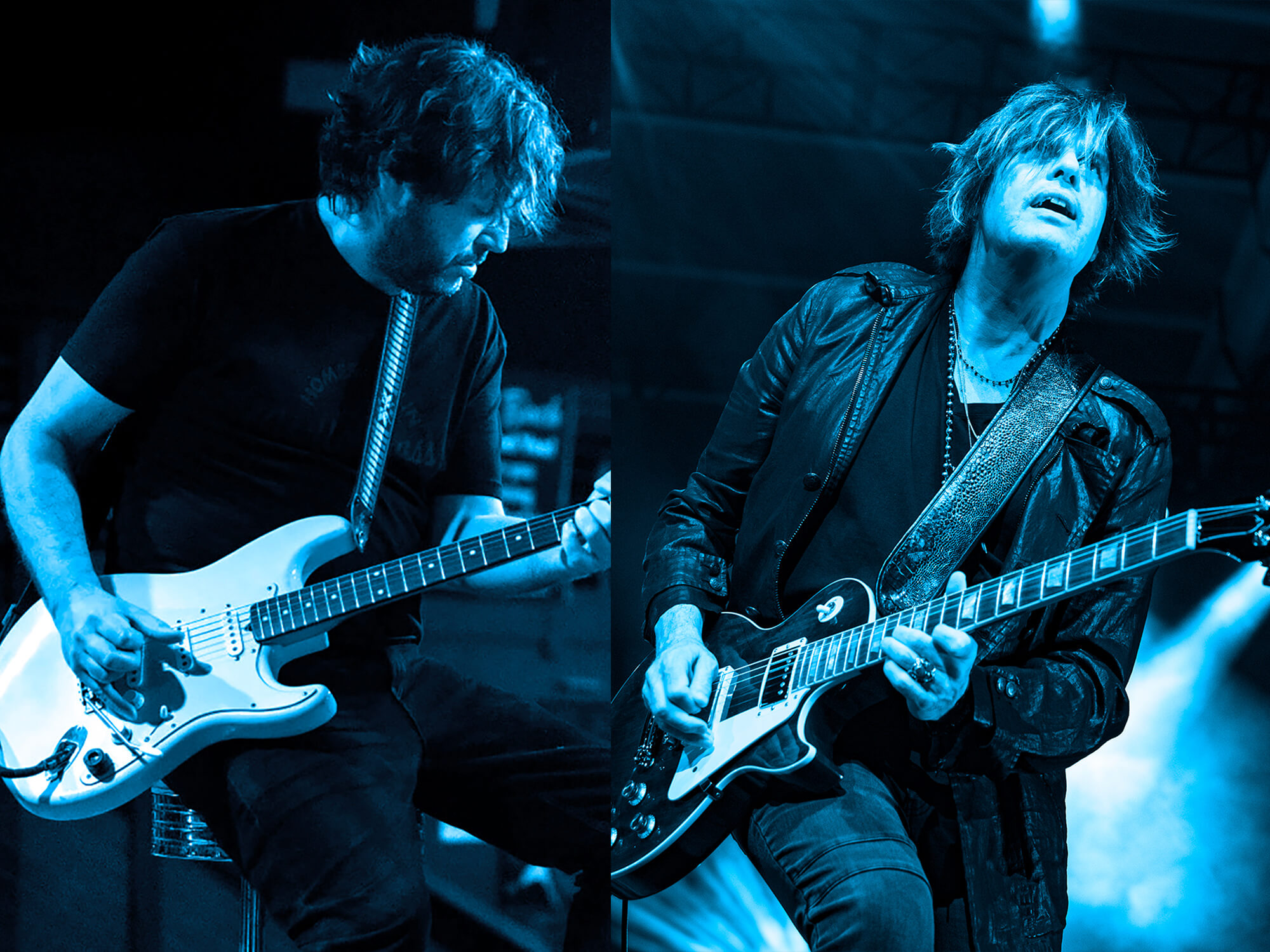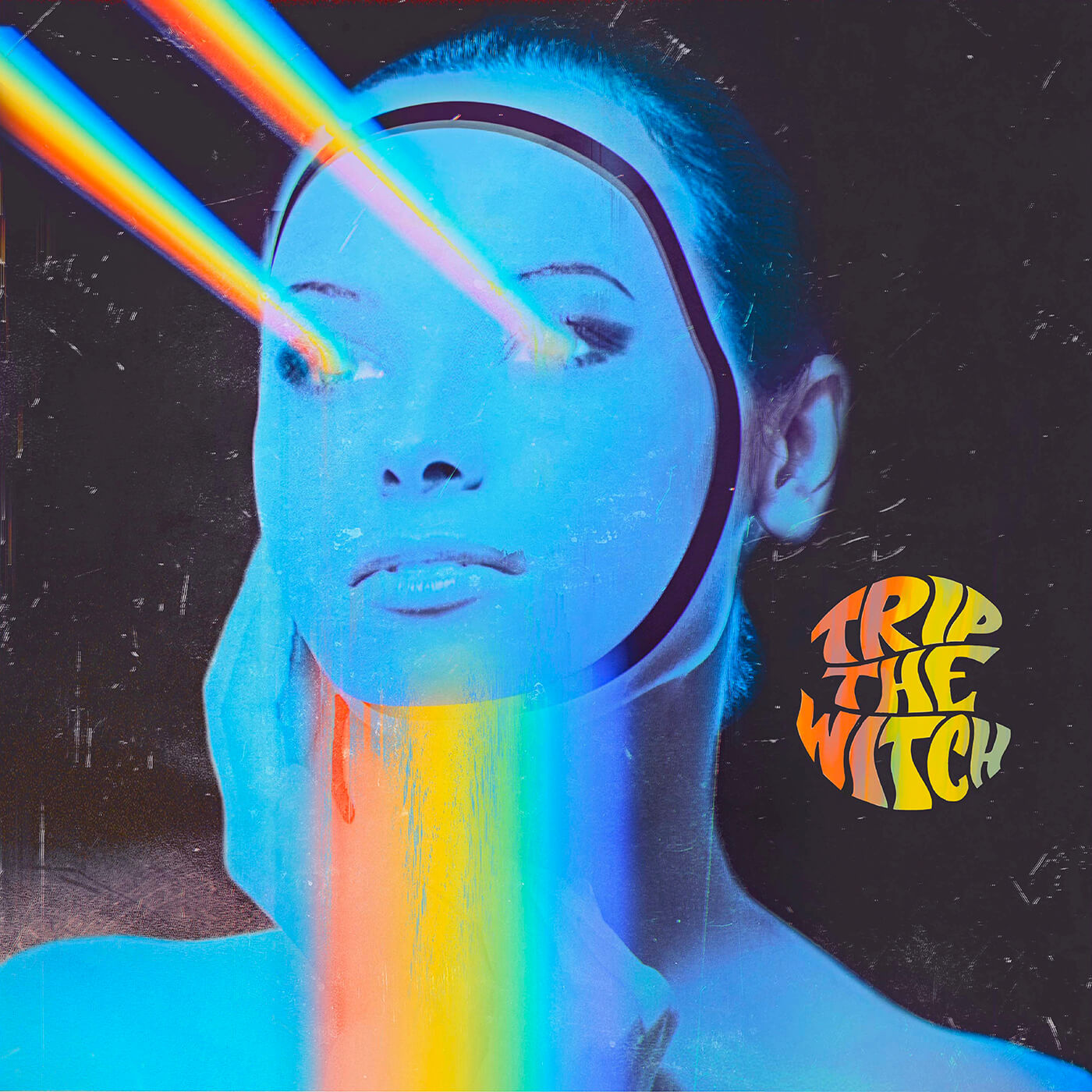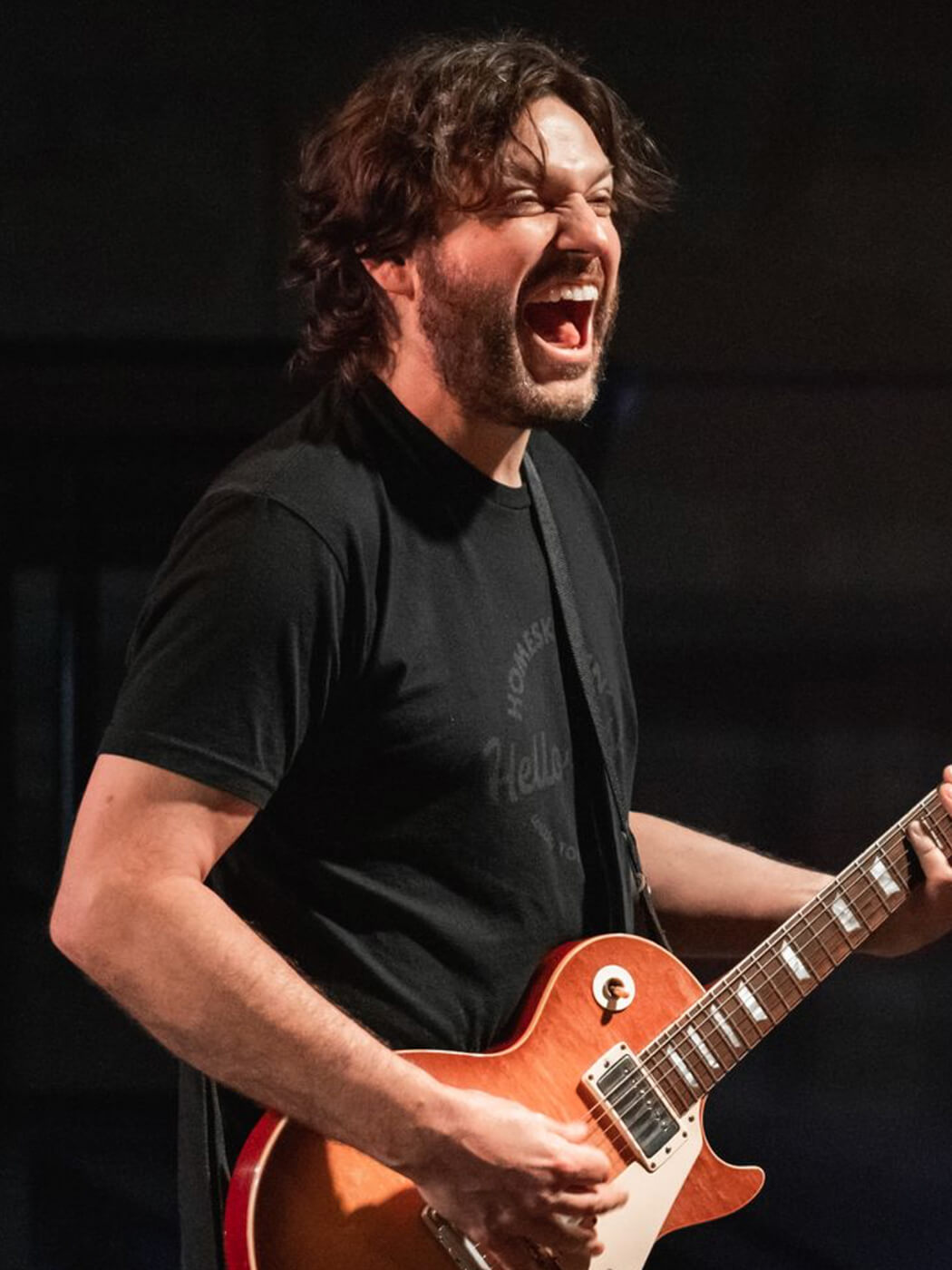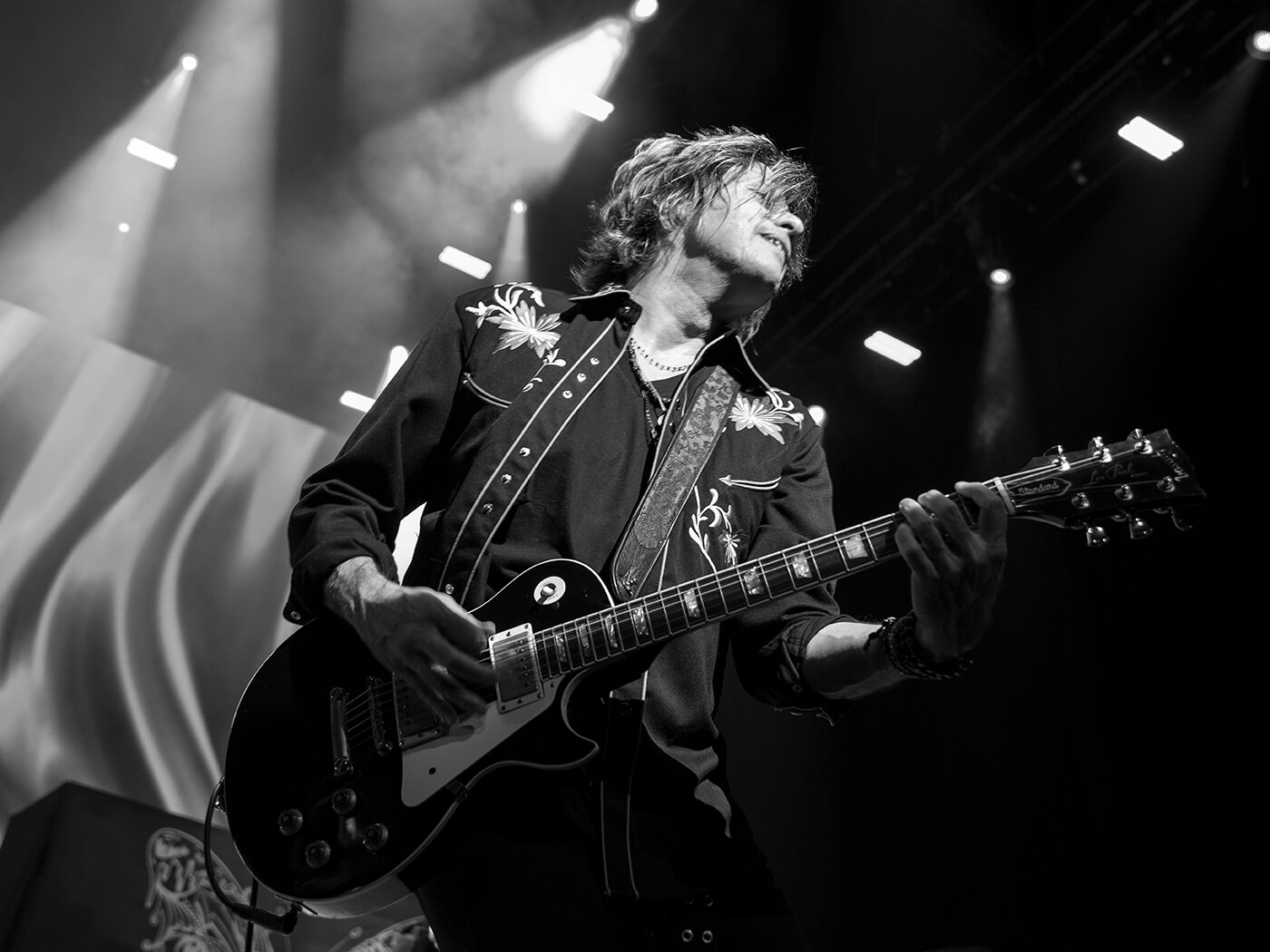“We should have called the record Pen Pals”: Tom Bukovac and Dean DeLeo on their long-distance collaborative album Trip the Witch
Stone Temple Pilots guitarist Dean DeLeo and Nashville session legend Tom Bukovac recently released a spellbinding collaborative album – but they’ve never even been in the same room.

On their first-ever collaborative project, Trip the Witch, Stone Temple Pilots guitarist Dean DeLeo and premier Nashville session picker Tom Bukovac sound like two players sharing the same mind. They have a natural, unforced chemistry – the kind of magical bond usually enjoyed by musicians who have been performing together for years and are intimately aware of each other’s styles, impulses and nuances.
But here’s the kicker: not only have the two guitarists only recently begun their association, they’ve never even been in the same room together.
“It blows people away when they hear that,” DeLeo says. “Everything Tom and I played together on this record was done 2,000 miles apart.”
“I’m amazed myself,” says Bukovac. “Dean and I would talk every day and send texts back and forth but we have yet to actually meet.” He laughs. “We should have called the record Pen Pals.”
Bukovac, who has more than 800 recording credits to his name, along with a boatload of Academy of Country Music awards for Best Guitarist, has long admired DeLeo for his work with Stone Temple Pilots. “I grew up on their music, man,” he says. “I have so many good memories of listening to those records, and I’ve always loved Dean’s playing.” For his part, DeLeo was well aware of Bukovac’s output and reputation. But he became a rabid fanboy after being introduced to the guitarist’s instructional Homeskoolin’ YouTube series. “My engineer friend Ryan Williams turned me on to the videos and I couldn’t stop watching them,” says DeLeo. “Tom came off as so friendly and knowledgeable and, of course, he’s a monster guitar player. I just had to reach out to him.”
Williams put the two musicians in touch with each other. They immediately hit it off. Their first phone conversation lasted more than three hours; by the time they hung up they’d decided to make a record together. “We found out that we had so much in common,” says DeLeo. “It was like we knew each other for years and were friends already,” adds Bukovac, “It was freaky, The more we spoke, the more I felt like I was chatting with my long-lost brother. There was no way we weren’t going to make a record.”
What the two guitarists made – a vibey, psychedelic experience that blends rock, country, jazz and lounge music – is almost as surprising as what they didn’t, which is to say it’s not a shredfest. Chilled tracks such as Dressed to Kill Myself, The Bird Returns and Saturn We Miss You (the album’s lone vocal track, which features Yes legend Jon Anderson) spread over listeners like blissed-out hallucinations, with DeLeo and Bukovac allowing each other ample room to shine. What’s striking is how seamlessly their styles match up – at times, it’s difficult to tell them apart.
Which, according to DeLeo, was pretty much the idea all along. “This record wasn’t about showing off our virtuosity,” he says, “although I can flatly and honestly state that I’m nowhere as proficient a player as Tom. No, what we wanted to do was share cool music with each other and celebrate our friendship. You can get fierce guitar duels somewhere else.”

It’s stunning how alike the two of you sound on this record. Can you break down the differences in your styles?
Dean DeLeo: Well, like I said, Tom can play anything. He plays on thousands of records; it’s just what he does, six days a week, and he’s paid to work quickly. I’m pretty good at what I do but I take more time to get there. There were probably several times throughout making this record where, if I was in the room with Tom, he might have just grabbed the guitar from me and said, “Let me just do that”.
Tom Bukovac: I would say I’m the meat-and-potatoes guy and he’s like the freak-out special sauce that makes everything sound cosmic. He’s an amazing slide player. Any sound you hear on the record that’s really bizarre and unusual, that’s Dean.
There are some tracks you two wrote individually, while others are co-writes. How did that process go down?
DeLeo: We would just send stuff back and forth, utilizing our phones. We never once Zoomed. We just sent little movies of songs and bits and bobs to each other. A good example of each of us kind of throwing our ideas in the hat was Dressed to Kill Myself. I had kind of the chorus thing. I sent that part to Tom and he was like, “Oh, I’ve got an idea”. He sent me back a video of him playing the chorus section and going into what we call the verse. We also did that on a song called Planet TD1. Tom had the verse and I kind of wrote the chorus and the bridge.
Bukovac: The way we collaborated was amazing. I’m not comparing ourselves to Lennon and McCartney but they were a good foil for each other – one would come up with this really sweet bit and the other would answer with something sort of sour. That’s how Dean and I worked. He came up with this pretty aggressive riff for Dressed to Kill Myself and I sent him more of a chill Gilmour-esque B-section. I love working like that. Ideas become bigger and better when two people put their heads together.

Isn’t technology amazing? You don’t have to be together in this giant big studio.
DeLeo: It’s incredible. And I’ll tell you, there was this sheer excitement that came with it. Tom would send me something and I felt like a little kid opening one of my first Christmas gifts. Tom sent me The Bird Returns and I went to the studio with Ryan and listened to it. We just sat there stunned. It brought a tear to my eye, man. I felt so connected to it. I kept thinking, “This is so good. How do I not ruin this?”
Bukovac: I have to give a big hand to Dean here. A lot of good ideas get half-baked in the oven and get aborted. But this actually really happened and it came through. He was relentless, man. I’m not very organized, and he was just like, “We’re going to do this”. And, man, he just drove it to the goal line.
DeLeo: And I have to give a lot of credit to the other people who worked on the record: Ryan Williams did an astounding job engineering and mixing. And we had awesome drummers: Chris McHugh, Jason Sutter, Ian Fitchuk and Shannon Forrest. The great Steve Mackey played bass. A lot of people to thank.
How did you two go about complementing your guitar tones?
DeLeo: Figuring out tones is really just about listening – that and figuring out how much to play. A lot of times, Tom would listen to something I did and he’d say, “That’s great but can you take out some notes?” And every time I tried it, it was better because it created space in the music.
Bukovac: I’m a pretty good editor. Dean’s a good editor too. He knows how to weed out anything that’s lame or corny. He’s an old stoner kind of guy who wants everything to be real. He gets rid of the fluff. But like I said, I’m pretty good myself. Sometimes you just need the other guy to look over your work.
We were both really conscious about leaving each other a lot of room to do things – tonally and as far as notes go. If everything sounds the same, it’s not very interesting. Dean was great at finding sounds that worked as a contrast. When I sent him Wall of Sound, I was like, “What’s he gonna do?” And, man, he found all these quirky little sounds that just sort of appear and disappear, and they work great with the big fat lead that’s happening in there. He reminds me of early Billy Gibbons in the sense that – if you listen to those first ZZ Top records, there’s so many little overdub parts that Billy did with totally different sounds. They pop in and out and constantly surprise you.
A lot of the album sounds very relaxed and moody. Was that the plan?
Bukovac: That was a goal from the beginning. Right up front, I said, “Man, we’ve got to make a record that you could put on at a cool party of grown-ups in the background, and nobody would get freaked out and turn it off”. That was the whole point. Those are the kind of records I like. I don’t want to be challenged by shit anymore. I don’t like it.
DeLeo: I put on this record and it just makes me feel good.
Bukovac: It trippy, and it takes you places. I think it’s good driving music, but you can chill out to it at home, too.
Speaking of trippy, there’s the song Saturn, We Miss You. How did you get Jon Anderson involved?
DeLeo: Tom wrote that one, although I came up with the title. After we did it, I said, “Wouldn’t Jon Anderson be great on this track?” Tom is as big a Yes fan as me, and he was totally into it. So I emailed Jon, introduced myself and sent him the song. I didn’t get anything back for a couple of days but one day I opened my email and there it was: this lovely reply from Jon. He sent me the track with him singing on it and wrote, “Hey Dean, I love this song. I really enjoyed singing on your music.” He left his phone number and said, “Call me. Let me know what you think.” I wasted no time – I immediately called him. I couldn’t hold back. I was like, “I love you, Jon”.
If you’re ever going to have a cosmic experience, it should definitely be with Jon Anderson. I got the track back from him and it was just the way you hear it. He laid that song out so brilliantly and beautifully and tapped into the complete essence of the title and the musicality of the song. We were so knocked back, man.

Tom, a couple of the songs that have you listed as the main writer – Wall of Sound and Surfside Lounge – sound like they could have been vocal songs.
Bukovac: That was one of my things I was insistent on, because at one time there was talk about getting singers on other tracks. Truth is, I was angling all along for it to be an instrumental record. But if we were going to have vocals, I thought they should sound like vocal songs, so I was writing these big melody licks.
How did you guys claim the solos?
Bukovac: It was like we were going out for sushi: “Here, man, try this.” “No, no, no, you eat this.” “No, you eat it.” Nobody had an ego about wanting to do everything. I’d rather hear Dean play. I know what I would do. So being that we’re fans of each other’s playing, we were kind of passing the ball back and forth. There were times when I thought I had a good handle on a solo, but other times I knew he’d do a better job of it. But we weren’t competing and trying to blow each other out of the water. We were trying to inspire each other.
Even so, were there times when one guy did pass at a solo but the other guy came in and bettered it?
Bukovac: There were a couple of those but not many. Like I said, it’s more exciting for me to hear what Dean can do. I’ve heard myself a million times. I know what I can play. I liked hearing all the crazy things he came up with. I was just like, “Wow, I would’ve never thought of that”.
Dean, one of your songs, We Lived Here, is very haunting and has amazing guitar orchestrations. How long did it take you to work that out?
DeLeo: That one didn’t take too long to write. I cut some melodies for it and I played bass and laid down the foundation of the rhythm guitars. Then I sent it off to Tom and he had Chris McHugh play drums on it in Nashville. Tom came up with the melodies in the verses and the chorus. I know what you mean about “haunting”. I’ll put the song on and it still gives me goosebumps, man. It’s so interesting that we were able to combine our melodies.
The song Black Light/Reclaim My Time is the hardest rocker on the record. There’s a few solos on it. Did you divvy them up?
DeLeo: I think there’s two solos that appear at the end of Black Light. I take the first one, Tom takes the second one, and then the solo on the outro of Reclaim My Time is mine. It just happened that way.
Bukovac: That song is 99 per cent Dean. I added one little solo and then I did that vocal bit, which I desperately tried not to use on the album but they insisted. I’m a terrible singer but they thought it was cool. I was outvoted.
What were your main guitars on this record?
DeLeo: I brought in a few things. I have one of those wacky Danelectro sitars – I used it on Saturn, We Miss You. And I brought in my ’57 Les Paul Special on some things on this. My dear friend Bruce Nelson built me some really beautiful guitars. I love them for so many reasons but one important reason is that they stay in tune. He’s built me incredible guitars for 18 years now. He made me a Tele-style model with Firebird pickups. Everything he makes is incredible.
Bukovac: I was excited to play one guitar in particular. A very wealthy friend of mine let me borrow his ’58 sunburst Les Paul. It was more guitar than I could ever afford but, let me tell you, it’s the best guitar I’ve ever played. I used it all over the record – it was just fantastic. After I finished, well, I just couldn’t part with it, so I sold everything I own to purchase it.
Oh my!
Bukovac: Yeah, I figure, if I die with one guitar, it’s going to be that one. That was my main guitar on the record – it’s just ridiculous. Other than that, I did use my Duesenberg Multibender. Everybody thinks I’m playing a pedal steel but it’s the Duesenberg. And I used a couple of different acoustics. I have an old Martin ’38 000-18, and I played a new Taylor 12-string. Basically, the Les Paul covered most everything, though. I can’t say enough about that guitar. You hear people talk about these Holy Grail guitars, and you think, “Oh, c’mon. It can’t be that good”. This guitar is that good.
Trip The Witch is out now.
